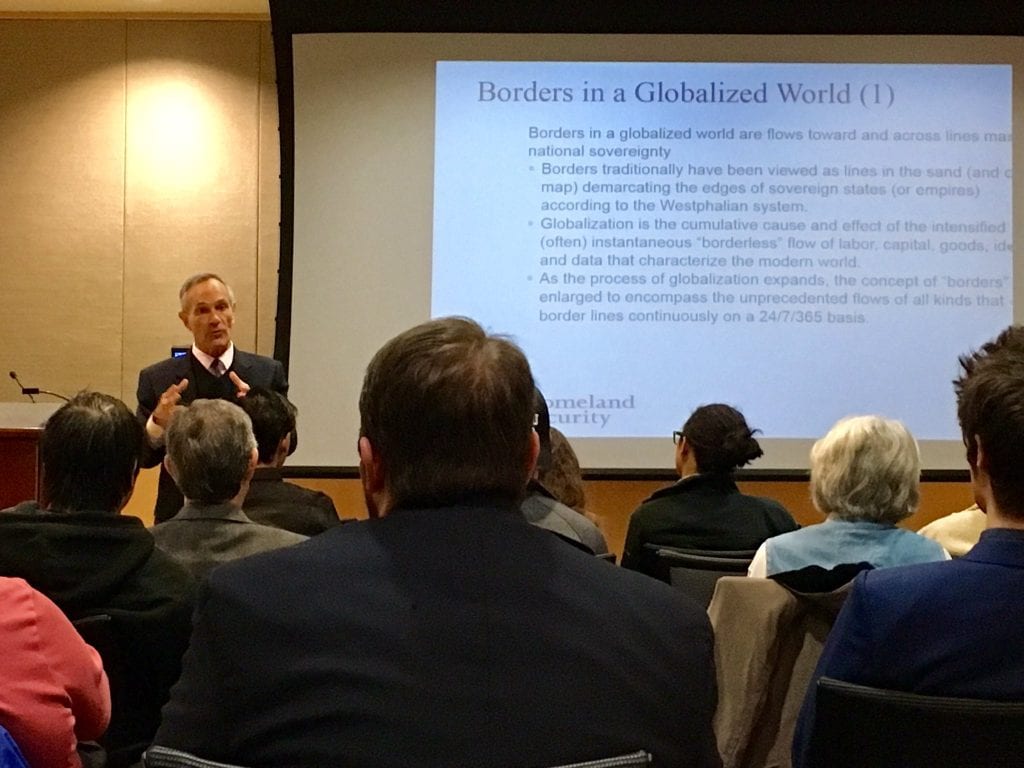
Alan Bersin, assistant secretary for the U.S. Department of Homeland Security (DHS), gave a talk Dec. 6 at the Texas-Mexico Center discussing the changing nature of borders in a globalized world.
Borders are no longer lines in the sand, Bersin said. They are flows of people and goods. They aren’t the first line of defense for a nation either. In a globalized community, “the border begins where airplanes take off.”
This means that in order to secure the homeland, the U.S. has to secure the flows of goods and people coming to the U.S. — once they reach the border it’s too late. On average, 97 to 98 percent of trade and travel is lawful. The challenge for DHS is to sort out the illicit 3 percent, to “find the needle in the proverbial haystack,” Bersin said.
He laid out three ways to find the needle:
- Search every piece of hay
- Use intelligence to locate the needle
- Make the haystack smaller
The DHS has elected to focus on option three: find the 97 to 98 percent of trade and travel that is legal and move it across the border quickly, making the haystack smaller. This way they can allocate resources to uncover the potentially harmful 3 percent. This is accomplished through programs like Global Entry, which allows people to give up information to the government, be classified a low-risk passenger, and quickly pass through border security.
DHS’s goal is to provide heightened security without disrupting the flow of people and goods.
Along with globalization and advancements in technology came a paradigm shift in information sharing. Nations used to hoard information in hopes of trading insights for diplomatic advantage, but in a globalized economy information sharing is essential. It allows governments to connect the dots.
Bersin transitioned to a discussion of the U.S.-Mexico relationship. He argued that NAFTA created a partnership in 1994, transforming the two countries that were once neighbors into roommates. “You can leave your neighbor, you can’t walk out on your roommate,” he said.
From the roommate perspective of NAFTA, Bersin is skeptical that the new administration led by President Donald Trump will follow through with his claimed intent to back out of the deal. He said that while there will most definitely be changes on issues like immigration, the U.S. is too intertwined with Canada and Mexico to dismantle the trade agreement.
Trump’s advisers will look at their options and find they don’t want to leave the deal. “I have great faith,” Bersin said. Time will tell if Donald Trump defies expectations again.
Listen to Alan Bersin’s talk here: